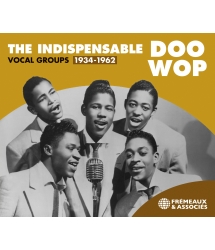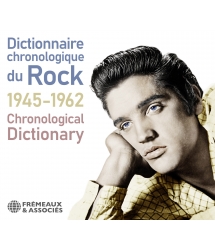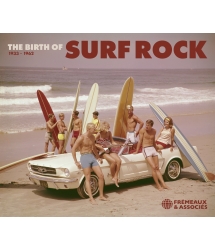- Our Catalog
- Philosophy
- Philosophers of the 20th century and today
- History of Philosophy (PUF)
- Counter-History and Brief Encyclopedia by Michel Onfray
- The philosophical work explained by Luc Ferry
- Ancient thought
- Thinkers of yesterday as seen by the philosophers of today
- Historical philosophical texts interpreted by great actors
- History
- Books (in French)
- Social science
- Historical words
- Audiobooks & Literature
- Our Catalog
- Jazz
- Blues
- Rock - Country - Cajun
- French song
- World music
- Africa
- France
- Québec / Canada
- Hawaï
- West Indies
- Caribbean
- Cuba & Afro-cubain
- Mexico
- South America
- Tango
- Brazil
- Tzigane / Gypsy
- Fado / Portugal
- Flamenco / Spain
- Yiddish / Israel
- China
- Tibet / Nepal
- Asia
- Indian Ocean / Madagascar
- Japan
- Indonesia
- Oceania
- India
- Bangladesh
- USSR / Communist songs
- World music / Miscellaneous
- Classical music
- Composers - Movie Soundtracks
- Sounds of nature
- Our Catalog
- Youth
- Philosophy
- News
- How to order ?
- Receive the catalog
- Manifesto
- Dictionnary











- Our Catalog
- Philosophy
- Philosophers of the 20th century and today
- History of Philosophy (PUF)
- Counter-History and Brief Encyclopedia by Michel Onfray
- The philosophical work explained by Luc Ferry
- Ancient thought
- Thinkers of yesterday as seen by the philosophers of today
- Historical philosophical texts interpreted by great actors
- History
- Books (in French)
- Social science
- Historical words
- Audiobooks & Literature
- Our Catalog
- Jazz
- Blues
- Rock - Country - Cajun
- French song
- World music
- Africa
- France
- Québec / Canada
- Hawaï
- West Indies
- Caribbean
- Cuba & Afro-cubain
- Mexico
- South America
- Tango
- Brazil
- Tzigane / Gypsy
- Fado / Portugal
- Flamenco / Spain
- Yiddish / Israel
- China
- Tibet / Nepal
- Asia
- Indian Ocean / Madagascar
- Japan
- Indonesia
- Oceania
- India
- Bangladesh
- USSR / Communist songs
- World music / Miscellaneous
- Classical music
- Composers - Movie Soundtracks
- Sounds of nature
- Our Catalog
- Youth
- Philosophy
- News
- How to order ?
- Receive the catalog
- Manifesto
- Dictionnary
1948-1962
Lonnie Donegan • Billy Fury • Cliff Richard and the Shadows • The Beatles
Ref.: FA5832
Artistic Direction : BRUNO BLUM
Label : FREMEAUX & ASSOCIES
Total duration of the pack : 2 hours 48 minutes
Nbre. CD : 3
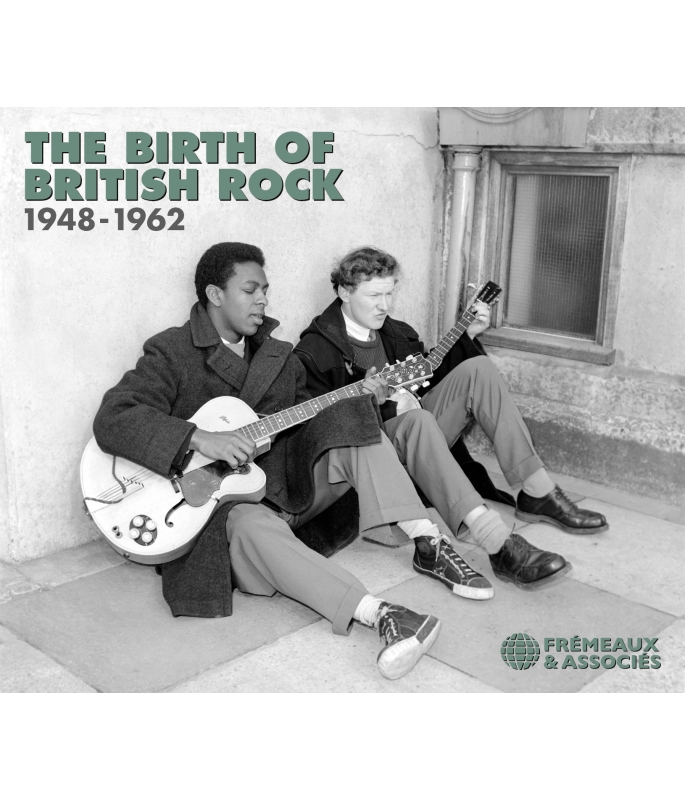
1948-1962
1948-1962
British rock was born before the cultural upheaval brought by The Beatles. Inspired at first by the United States, as well as Jamaican and Trinidadian colonies, English rock blossomed out of blues musicians like Alexis Korner, boogie, such as Winifred Atwell’s, and the great skiffle craze led by Scotsman Lonnie Donegan. Then came the rise of young artists inspired by the Elvis Presley phenomenon in the US: Tommy Steele, Marty Wilde, Johnny Kidd, Vince Taylor - and also great English stars such as Billy Fury & Cliff Richard and The Shadows. Bruno Blum unveils some remarkable records here and comments on the best of this overlooked period, as The Beatles were assimilating this music and already building their up-and-coming revolution.
Patrick FRÉMEAUX
DISC 1 - THE ROOTS OF BRITISH ROCK 1948-1957 : FIVE GUYS NAMED MOE - RAY ELLINGTON • OAKIE BOOGIE - LITA ROZA • MIDNIGHT SPECIAL - KEN COLYER SKIFFLE GROUP • ROCK ISLAND LINE - LONNIE DONEGAN AND HIS SKIFFLE GROUP • ROCK-A-BOOGIE BABY - DIANA DECKER • GIDDY-UP-A DING DONG - RAY ELLINGTON • STRANDED IN THE JUNGLE - RAY ELLINGTON • ROCK WITH THE CAVEMAN - TOMMY STEELE • ROCK AROUND THE TOWN - TOMMY STEELE • REBEL ROCK - TOMMY STEELE AND THE STEELMEN • I’M IN LOVE AGAIN - ALMA COGAN • FABULOUS - ALMA COGAN • WILD CAT - MARTY WILDE AND THE WILDCATS • TEDDY BEAR - SHORTY MITCHELL • TEENAGE BOOGIE - TERRY WAYNE • COUNTY JAIL - ALEXIS KORNER SKIFFLE GROUP • JIMMY DORSEY BOOGIE - WINIFRED ATWELL • DON’T YOU ROCK ME DADDY-O - LONNIE DONEGAN • CUMBERLAND GAP - LONNIE DONEGAN • ROCK YOU SINNERS - ART BAXTER AND HIS ROCK ‘N’ ROLL SINNERS • ROCK ROCK ROCK - SHORTY MITCHELL • ROCKIN’ AT THE 2 I’S - WEE WILLIE HARRIS • WHOLE LOTTA SHAKIN’ GOIN’ ON - THE TUNETTES • START MOVIN’ - TERRY DENE.
DISC 2 - EARLY BRITISH ROCK CLASSICS 1958-1960 : MOVE IT - CLIFF RICHARD • HIGH CLASS BABY - CLIFF RICHARD • RIGHT BEHIND YOU BABY - VINCE TAYLOR • I LIKE LOVE - VINCE TAYLOR • BRAND NEW CADILLAC - VINCE TAYLOR AND HIS PLAY-BOYS • LIVING DOLL - CLIFF RICHARD • NEVER MIND - CLIFF RICHARD • PLEASE DON’T TOUCH - JOHNNY KIDD AND THE PIRATES • SUE SATURDAY - JULIAN • ROCK HOUSE - TERRY WAYNE • SHE’S MINE - TERRY WAYNE • COMES THE DAY - JOE BROWN • SLIPPIN’ AND SLIDIN’ - DICKIE PRIDE • BATTLE OF NEW ORLEANS - LONNIE DONEGAN • MEAN STREAK - CLIFF RICHARD • TEENAGER IN LOVE - MARTY WILDE • APRON STRINGS - CLIFF RICHARD • BE-BOP-A-LULA - THE DRIFTERS [THE SHADOWS] • LITTLE CUTIE - SALLY KELLY • SHAKIN’ ALL OVER - JOHNNY KIDD AND THE PIRATES • LONGIN’ LIPS - JOHNNY KIDD AND THE PIRATES • WONDROUS PLACE - BILLY FURY • LAMP OF LOVE - CLIFF RICHARD AND THE SHADOWS • HAWK - DANNY RIVERS.
DISC 3 - MAINSTREAM BRITISH ROCK 1960-1962 : BILLY FURY : THAT’S LOVE • MY ADVICE • PHONE CALL • YOU DON’T KNOW • TURN MY BACK ON YOU • DON’T SAY IT’S OVER • SINCE YOU’VE BEEN GONE • IT’S YOU I NEED • ALRIGHT, GOODBYE • DON’T LEAVE ME THIS WAY. APACHE - THE SHADOWS • VALLEY OF THE SIOUX - THE OUTLAWS • SWINGIN’ LOW - THE OUTLAWS • TRIBUTE TO BUDDY HOLLY - MIKE BERRY • FURY’S TUNE - BILLY FURY • MY BONNIE - TONY SHERIDAN W/THE BEATLES • GOOD GOLLY MISS MOLLY - SCREAMING LORD SUTCH • RAIN IS SUCH A LONESOME SOUND - BLUES INCORPORATED W/ALEXIS KORNER & LONG JOHN BALDRY • I CAN TELL - JOHNNY KIDD AND THE PIRATES • A SHOT OF RHYTHM AND BLUES - JOHNNY KIDD • BIG BLOND BABY - VINCE TAYLOR AND HIS PLAY-BOYS • TELSTAR - THE TORNADOS • LOVE ME DO - THE BEATLES • P.S. I LOVE YOU - THE BEATLES.
DIRECTION ARTISTIQUE : BRUNO BLUM
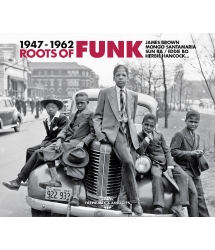
JAMES BROWN • MONGO SANTAMARIA • SUN RA / EDDIE BO •...
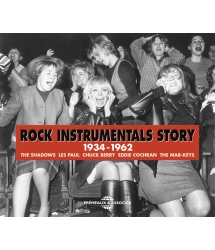
THE SHADOWS • LES PAUL • CHUCK BERRY • EDDIE COCHRAN...
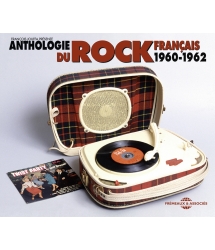
EDDY MITCHELL, JOHNNY HALLYDAY, DICK RIVERS…
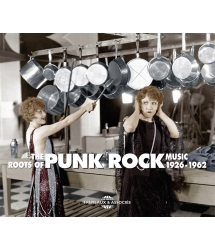
PUNK ROCK (THE ROOTS OF) 1926-1962
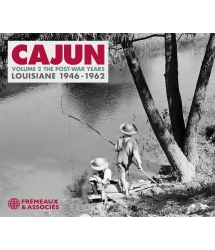
LOUISIANE 1946-1962





-
PisteTitleMain artistAutorDurationRegistered in
-
1Five Guys Named MoeRay Ellington QuartetBresler00:02:501948
-
2Oakie BoogieTed Heath and His MusicJohnny Tyler00:02:291952
-
3Midnight SpecialKen Colyer GroupInconnu00:02:481954
-
4Rock Island LineLonnie Donegan GroupLead Belly00:03:211955
-
5Rock-A-Boogie BabyDiana DeckerBill Darnel00:02:361956
-
6Giddy-Up-A Ding DongRay Ellington QuartetFreddie Bell00:02:101956
-
7Stranded In The JungleRay Ellington QuartetJohnson00:02:561956
-
8Rock With The CavemanTommy Steele and The SteelmenTommy Steele00:01:551956
-
9Rock Around The TownTommy Steele and The SteelmenTommy Steele00:01:531956
-
10Rebel RockTommy Steele and The SteelmenTommy Steele00:02:031956
-
11'I''m in Love Again'Alma CoganFats Domino00:02:011956
-
12FabulousAlma CoganBernie Lowe00:02:031957
-
13Wild CatMarty Wilde and The Wild CatsMarty Wilde00:02:071957
-
14Teddy BearShorty MitchellMann Kal00:01:521957
-
15Teenage BoogieTerry WayneWebb Pierce00:02:071957
-
16County JailAlexis Korner Skiffle GroupBig Maceo00:03:111957
-
17Jimmy Dorsey BoogieWinifred AtwellJimmy Dorsey00:01:561957
-
18'Don''t You Rock Me Daddy-O'Lonnie Donegan GroupBill Varley00:01:421957
-
19Cumberland GapLonnie Donegan GroupDonegan00:01:571957
-
20Rock You Sinners'Art Baxter and His Rock''n Roll Sinners'Coslow00:02:091957
-
21Rock Rock Rock'Art Baxter and His Rock''n Roll Sinners'Moore.00:02:311957
-
22'Rockin'' At The 2 I''s'Harris Wee WillieHarris Wee Willie00:02:341957
-
23'Whole Lotta Shakin'' Goin On'The TunettesBig Maybelle00:02:461957
-
24'Start Movin'''Terry DeneStevenson00:02:531957
-
PisteTitleMain artistAutorDurationRegistered in
-
1Move ItCliff RichardIan Samwell00:02:211958
-
2High Class BabyCliff RichardIan Samwell00:02:091958
-
3Right Behind You BabyVince TaylorCharlie Rich00:02:101958
-
4I Like LoveVince TaylorJack Clement00:02:041958
-
5Brand New CadillacVince TaylorBrian Maurice Holden00:02:361959
-
6Living DollCliff RichardLionel Bart00:02:371959
-
7Never MindCliff RichardIan Samwell00:02:021959
-
8'Please Don''t Touch'Johnny KiddJohnny Kidd00:01:511959
-
9Sue SaturdayJulian LeeIan Samwell00:02:241959
-
10Rock HouseTerry WayneRoy Orbison00:01:551959
-
11'She''s Mine'Terry WayneJohn Strickland00:02:091959
-
12Comes The DayJoe BrownDoc Pomus00:02:111959
-
13'Slippin'' And Slidin'''Dickie PrideEdwin Bocage00:02:201959
-
14Battle Of New OrleansLonnie Donegan GroupInconnu00:03:091959
-
15Mean StreakCliff RichardIan Samwell00:01:591959
-
16Teenager In LoveMarty WildeDoc Pomus00:02:201959
-
17Apron StringsCliff RichardAaron Harold Schroeder00:02:391959
-
18Be-Bop-A-LulaThe DriftersGene Vincent00:02:161959
-
19Little CutieSally KellyLionel Bart00:02:161960
-
20'Shakin'' All Over'Johnny KiddJohnny Kidd00:02:201960
-
21'Longin'' Lips'Johnny KiddJohnny Kidd00:01:461960
-
22Wondrous PlaceBilly FuryGiant00:02:241960
-
23Lamp Of LoveCliff RichardJones00:01:481960
-
24HawkDanny RiversThomas00:02:291960
-
PisteTitleMain artistAutorDurationRegistered in
-
1'That''s Love'Billy FuryWilber Wilberforce00:01:461960
-
2My AdviceBilly FuryWilber Wilberforce00:02:051960
-
3Phone CallBilly FuryWilber Wilberforce00:02:411960
-
4'You Don''t Know'Billy FuryWilber Wilberforce00:02:261960
-
5Turn My Back On YouBilly FuryWilber Wilberforce00:02:201960
-
6'Don''t Say It''s Over'Billy FuryWilber Wilberforce00:01:511960
-
7'Since You''ve Been Gone'Billy FuryWilber Wilberforce00:02:241960
-
8'It''s You I Need'Billy FuryWilber Wilberforce00:01:451960
-
9Alright GoodbyeBilly FuryWilber Wilberforce00:02:041960
-
10'Don''t Leave Me This Way'Billy FuryWilber Wilberforce00:02:411960
-
11ApacheThe ShadowsJeremiah Patrick Lordan00:02:541960
-
12Valley Of The SiouxThe OutlawsRobert Duke00:02:431961
-
13'Swingin'' Low'The OutlawsIvor Raymonde00:02:041961
-
14Tribute To Buddy HollyThe OutlawsGeoffrey Godard00:02:571961
-
15'Fury''s Tune'Billy FuryBilly Fury00:02:081961
-
16My BonnieTony SheridanInconnu00:02:071961
-
17Good Golly Miss MollyThe SavagesJohn Marascalco00:02:371961
-
18Rain Is Such A Lonesome SoundLong John BaldryJimmy Witherspoon00:02:491961
-
19I Can TellJohnny KiddSmith00:02:301962
-
20A Shot Of Rhythm And BluesJohnny KiddTerry Thompson00:01:591962
-
21Big Blond BabyVince TaylorTerry Thompson00:02:291962
-
22TelstarThe TornadosJoe Meek00:03:181962
-
23Love Me DoThe BeatlesJohn Lennon00:02:231962
-
24P.S. I Love YouThe BeatlesJohn Lennon00:02:041962
THE BIRTH OF BRITISH ROCK - 1948-1962
By Bruno Blum
On July 6, 1957, in the port of Liverpool, in the northwest of England, the meeting of teenage John Lennon and Paul McCartney (joined by George Harrison in 1958) sealed the formation of The Beatles, the most popular and influential rock group of all time. They remain the biggest sellers of recorded music in history.
Their first 45 RPM single, Love Me Do/P.S. I Love You, which ends this set, marked the true start of their phenomenal rise to the top. Their musical and socio-cultural impact struck the entire world and, of course, America, from which they had drawn the essentials of their inspiration: blues, rock ‘n’ roll, rockabilly, ska, pop songs and soul.
Rock went through a spectacular “return to sender” in America with The Beatles - Englishmen! - landing there in February, 1964. This took place after six years of ongoing scandals in American rock (1956-1962) and the rejection of it by the biggest American media outlets. Rock was at half-mast, which, in turn, favoured the return of more melodic popular music, a lighter and consensual dance music. But, as the remarkable recordings included here show, and before the historic British Invasion of America, British rock already had a history.
Jazz
American rhythm-based musics had already sparked off vocations in British jazz. Jamaica was still a British colony and Jamaicans loved dancing to the sound of jazz and blues shuffle in London and Birmingham’s Black night clubs and blues parties.
Ray Ellington (1916-1985) was the son of an African-American actor. A professional British jazzman, he admired Louis Jordan (and recorded Jordan’s Five Guys Named Moe, which is included here). Ellington was brought up by his Russian/Jewish mother and sang in the bop and jump blues styles at the start of rock and roll, backed by the Jamaican bass player of Jamaican saxophone great, Joe Harriott. His fine version of Stranded in the Jungle points to an African identity he tried to impersonate, with some humour (he pretended he was from Ghana)1.
Winifred Atwell had come from another colony, Trinidad-&-Tobago, and championed a very rhythmic boogie-woogie piano, which had become a trend in the 1950s. These African-American musics were increasingly adopted by British natives. British-styled jump blues, featuring heavily arranged horns, was dubbed “boogie” by Lita Roza, a white pop singer from Liverpool, by actor Diana Decker and Alma Cogan, a big star singer of the time, who like Ellington was of Jewish Ashkenazi origin.
Blues
British trombone player Chris Barber (who employed Lonnie Donegan on banjo and plays the bass on three of Donegan’s skiffle tunes here) also promoted tours by American blues artists such as Big Bill Broonzy and Muddy Waters in England.
A revival of American folk music (traditional, ancient compositions of unknown composers) took root in the 1950s.
And, in addition to an already established jazz scene, blues music was becoming appreciated by more and more buffs in Great Britain. In London, a few Soho clubs attended by Afro-Caribbeans and Afro-Americans, such as The Flamingo Club, founded in 1952 (and soon to be favoured by various musicians, including The Beatles, Jimi Hendrix, etc.) at 33-37 Wardour Street, already hosted a Jamaican sound system in the 1950s.
I’ve been listening to ska for years! It was the first music I ever saw being played onstage! At the Flamingo Club… it was Prince Buster with Georgie Fame, around 1958… […] I started dreaming I would become as famous as Georgie Fame2.
- Mick Jagger to this writer, London, 1980.
At the Marquee Club, established in 1958, then at Ronnie Scott’s as early as 1959 and The Flamingo, one could listen to jazz, and American, Caribbean (Jamaican especially) blues/shuffle3. Local white artists including harmonica player Cyril Davies and singer/guitar player Alexis Korner played the blues. Amongst these passionate musicians was a young British guitar player, Brian Jones, who in 1962 formed The Rolling Stones, in the pure spirit of the blues.
By 1962, the Ealing Club in London had become the first spot where blues/R&B groups played every Saturday night. The new generation of British blues musicians (the “British Blues Boom” to come), John Mayall, Eric Clapton, Rod Stewart, Jack Bruce, etc.) came there to jam. To at least some of them, Chuck Berry and Little Richard’s rock and roll was simply an exciting and authentic extension of electric blues and R&B.
Skiffle
A similar quest for authenticity and meaning was to be found in the folk movement, a U.S. trend of the 1950s.
The British folk revival had started around the same time in post-war trade union circles, but it was in 1956 that a vogue of very rhythmic American folk songs became prominent in Great Britain, branded “skiffle.” The Ken Colyer Skiffle Group occasionally included Alexis Korner, who sings Midnight Special (1954) here with them, a traditional song from prisoners who dreamt to flee aboard a train.
In 1956, Scotsman Lonnie Donegan hit it big with Rock Island Line, a traditional song, a cover of Lead Belly’s version that started this skiffle fashion. John Lennon was quoted as saying this was the first song he ever learned and he sang several of Donegan’s tunes in his first group, The Quarrymen.
“Skiffle” is a slang word that probably emerged in Chicago during the 1920s to describe informal jazz/blues groups, also called “washboard bands” or “spasms”. They played a happy, often hilarious music at parties4. They used all kinds of makeshift instruments, as well as traditional instruments (banjo, piano, drums, etc.). British musicians, including The Vipers Skiffle Group, featuring Shadows guitarist-to-be Hank Marvin, The Ken Colyer Band and the Chris Barber Skiffle Group (with Lonnie Donegan), using guitar, mandolin, banjo, washboard and sometimes a drum kit, played a traditional American folk repertoire. Donegan covered Battle of New Orleans (about the US vs Great Britain “War of 1812”) in addition to his own energetic compositions.
Skiffle and its American folk sensibility preceded and heralded the arrival of Elvis-type rock ‘n’ roll in Great Britain. The 1956-1958 skiffle trend made a contribution to the awakening of the second wave of British rock musicians, including The Who and The Beatles, who claimed it left a mark on them. Hundreds of venues soon welcomed folk musicians.
Rock and Roll in Europe
At the same time, the success of Elvis Presley and the other big names of rock ‘n’ roll had a substantial effect on European youth. However, in France, just like anywhere else, rock was put down by the press and few records were issued. In Germany, however, with a sizeable presence of the U.S. military (including a certain young G.I. called Elvis), rock music was quite present, notably in Hamburg, where The Beatles performed repeatedly in 1960-1962.
On the other hand, although it wasn’t common, rock existed in England right from the beginning of the Elvis phenomenon. Tommy Steele (a pseudonym adapted from his grandfather’s name, Thomas Stil-Hicks) was only nineteen. He was the first Englishman to score a hit record in this vein with Rock With the Caveman, an original composition issued in 1956 (also released in Germany and Australia). Steele worked in the Merchant Navy and it was during a stay in Norfolk, Virginia in the United States, that he first heard Buddy Holly. Upon return to Great Britain, he decided to drop Wally Wharton’s Vipers Skiffle Group and got into rock music instead, in a very talented way.
As Lonnie Donegan’s triumph was underway with his “skiffle” renditions of American folk songs, such as Cumberland Gap and Don’t You Rock Me Daddy-O (with an electric guitar solo this time), a genuine rockabilly singer surfaced in 1957. Terry Wayne had started live performances at the age of twelve, backing his father, who sang country music in popular pubs. Terry was quite independent and he was already a professional singer/guitar player and a connoisseur of blues and country when rockabilly hit London and became a passion for him.
At the time, the game was all about recording American hits before they were successful in the UK. His first record contains cover versions of two Carl Perkins songs, “Matchbox” and “Your True Love”. Then he covered Webb Pierce’s Teenage Boogie (plagiarised by Marc Bolan as “I Love To Boogie” in 1977).
England’s first authentic rockabilly singer was strongly influenced by Bill Haley’s style and horns, as were Ray Ellington, Shorty Mitchell, Tommy Steele and Art Baxter. Like Hector in France, Art Baxter and his Rock ‘n’ Roll Sinners were pioneering, eccentric rock and rollers, a typical feature of British rock, with conspicuous clothes, accessories and a provocative stage act, as was also found later with the infamous Screaming Lord Sutch (whose first record is included here).
Born in Isleworth in Middlesex, and following Gene Vincent’s example, Vince Taylor wore black leather from head to toe. His family had moved to New Jersey in 1946, when he was seven. The young Englisman lived in California for three years, where he saw Elvis Presley perform. He subsequently moved back to England, where his American accent opened some doors.
A good dancer, Taylor was much influenced by rockabilly aesthetics and became a singer in 1958. He got a reputation as an instigator of violence after a “leather-jacketed riot” in France a few years later. The B-side of his second record contains one of his few own compositions, entitled Brand New Cadillac, made famous by The Clash, who recorded it in 1979. The spirit of rockabilly was alive & well in the United Kingdom, from Johnny Kidd & the Pirates, all the way through to The Meteors’ “psychobilly” in the 1980s. Long exiled in Paris, Vince Taylor was the only genuine 1950s rock singer living in France, where he became a legend and issued a series of records (mostly covers) on the Barclay label.
Larry Parnes
In their early Liverpool days, The Beatles mainly built their sound borrowing from Elvis Presley, Gene Vincent and Carl Perkins’ rockabilly - not to mention Chuck Berry, Little Richard, Larry Williams, The Coasters and Ray Charles - who did not play actual rockabilly, but The Beatles nevertheless played their songs live. They recorded no less than seven Carl Perkins songs, including “Blue Suede Shoes”. Basically, the Beatles were mostly inspired by Elvis Presley, Buddy Holly and the Everly Brothers.
But other British musicians had preceded them in this direction and recorded in the rockabilly style before them.
Larry Parnes was Tommy Steele’s manager. Until then he had run three women’s clothes shops that his parents owned. A homosexual, Jewish producer, he was interested in theatre and young men; his protégés’ success encouraged him to work with other rock artists. He offered contracts to beginner singers, gave them pseudonyms like Marty Wilde (the father of 1980s singer Kim Wilde) and plugged them with television producer Jack Good. Good had started to broadcast his “Six-Five Special Show” on BBC Television in February 1957, aimed exclusively at the youth of the country. Elvis’ success in the United Kingdom helped and Good was in demand of rock-type singers. Parnes brought to him what soon became a whole stable of aspiring rock’n’ rollers.
An attractive physique was an important asset to Parnes, and the manager supplied his singers with a fashionable American rock ‘n’ roll wardrobe. The care he put into their presentation and their appearance was real. Larry Parnes, therefore, widely contributed in forging the founding image of rock and roll — as seen in England. With Jack Good’s support, he built the careers of around twenty male singers, including Vince Eager and, in the 1960s, Georgie Fame. Their music was often bland, an ersatz version of American rock, with overbearing, orchestrated arrangements; nevertheless, some very good moments did emerge.
Recordings by the Parnes stable, Terry Dene, Sally Kelly, Duffy Power, Marty Wilde, Dickie Pride, Danny Rivers and Joe Brown (who also backed Billy Fury) were derived from this set up. Some, like Shorty Mitchell, bluntly and carefully copied Elvis in a convincing way (Teddy Bear). So, years before the Beatles in 1962, rockabilly inspired Parnes to make up an image for a collection of teen idols seen on TV. But he took advantage of them, giving them little remuneration and himself cashed in on record sales and concert tickets. He also had a reputation for making physical advances to his protégés.
Homosexuality was prohibited at the time, and young, outlawed British gays often rejected the values of a discriminating society. Show business was more tolerant of their marginality and drew in a number of homosexuals to participate in the up-and-coming English rock trend then in its infancy. It is remarkable that managers of various bands, including Simon Napier-Bell (Yardbirds), Brian Epstein (Beatles) and Kit Lambert (The Who), who much contributed to shape 1960s rock, were gay.
Not forgetting Joe Meek, a visionary producer and creator of, among other outstanding tunes, the instrumental Telstar by The Tornados, the first English rock recording to hit number one in the American charts, in 1962. The Rolling Stones’ manager, Andrew Loog Oldham, was not gay, but he never concealed his fascination for this underground culture either, and took on some of its poses, which Mick Jagger soon picked up on.
To close this subtext, it ought to be remembered that, with Long John Baldry, Dusty Springfield, Marc Bolan, David Bowie, Gary Glitter, Elton John, Queen, Morrissey, Tom Robinson, Marc Almond, Jimmy Somerville and Boy George, that androgyny and LGBT styles and personas played an important part in the history of British rock.
In the USA, there was no shortage of links between homosexuality and rock either, but this would first be found in poets, intellectuals and writers of the “Beat Generation”5. Among many others, they influenced a bisexual Lou Reed and his band The Velvet Underground, which at the end of the 1960s were a major inspiration for David Bowie.
Other precursors of British rock had nothing to do with Parnes, and this included Screaming Lord Sutch, Vince Taylor and the remarkable Johnny Kidd and The Pirates (their 1960 hit, Shakin’ All Over has remained a British rock classic, and was covered by The Who in 1969; their 1959 song Please Don’t Touch was recorded by Motörhead twenty years later).
Johnny Kidd died in 1965 in another rock’n’roll car accident, but his band The Pirates kept touring, remaining a driving force on the pub rock scene right on up into the 1970s.
Teddy Boys
Since the early 1950s, Great Britain had kept a cult of pre-Beatles rock ‘n’ roll going. This was embodied in the local subculture of the “Teddy Boys”, who at first liked to listen to jump blues, jazz, rhythm and blues, and then British skiffle after 1955.
Teddy boys descended sartorially from male styles of clothing dating back to Edward VII (aka Teddy)’s reign, which is where they got their name. This clothes style was derived from the loose clothing worn by British dandies at the peak of the British Empire, under Queen Victoria’s heir, King Edward VII (who ruled from 1901 until 1910). They also favoured “zoot suits”, worn in the 1940s and 50s by musicians like Cab Calloway, Louis Jordan and Little Richard. Teddy Boys also took their cue from the local underworld (see Lewis Gilbert’s film Cosh Boy, 1953) and were the first British people to identify themselves, particularly, as teenagers – as completely different from their parents, that is.
A riot at a Bill Haley show in 1957 had rock music banned from the BBC and further marginalised this trend. Also, some Teds committed several racist assaults against first generation Jamaican immigrants. The first English rock singers, including Joe Brown, Tommy Steele, Marty Wilde, Billy Fury, Johnny Kidd and Cliff Richard all had Teds flocking to their shows.
Teddy boys were often linked to motorbike gangs wearing black leather (“rockers”), inspiring Jack Good to ask Gene Vincent to wear some black leather on his 1960 UK tour. This was the precursor to the famous “Mods versus Rockers” confrontations of the early 60s, “Mods” being followers of The Who and other 60’s London R&B bands, who modelled themselves on early 60s African-American music and dress styles, as opposed to the southern US, white rockabilly style of rockers.
Success
Known as the “British Elvis,” the first ever big British rock star was Cliff Richard, who soon became the biggest seller of records in the UK after The Beatles and Elvis, scoring an unbelievable amount of big hits, including a few in the USA. Cliff Richard recorded quality songs as well as a number of rock ‘n’ roll compositions, including his first hit in 1958, Move It. He was backed by studio musicians and his backing group, The Shadows (yes, the band that recorded the famous instrumental Apache, and were named The Drifters until October, 1959), who had their own career going independently of him. As from their next record, Hank Marvin was featured on lead guitar.
Rockabilly was also a driving force in the birth of English rock, thanks to its influence on The Shadows. They were Britain’s answer to the American instrumental group The Ventures. Their sound left a deep mark on various musicians of Great Britain, notably on The Outlaws, who scored two or three hits with instrumental tunes produced by the eccentric Joe Meek, Valley of the Sioux and Swingin’ Low6.
Another very successful English rock singer was Billy Fury, one of Larry Parnes’ protégés. He was influenced by Gene Vincent, Elvis and Eddie Cochran, sang well and was, no doubt, the best local rock composer during this pre-Beatles era. His first, overlooked album The Sound of Fury remains the first British rock classic (fully included here).
With true melodic compositions, such as Cliff Richard’s Living Doll, Fury and Richard had found their audience and thus heralded the new rock milieu that was already forming the sound of The Beatles in the new 1960s decade.
Futuristic experiments by Joe Meek, such as the huge hit Telstar and other massive sellers, gave rock music its proper place in the British radio and television landscape of the time.
Buddy Holly’s passing in 1959 inspired a Mike Berry hit song; Gene Vincent and Eddie Cochran’s ill-fated but triumphant 1960 UK tour did contribute greatly in popularising rock in Great Britain, as did Bill Haley & the Comets’ records and tours before them. Wee Willie Harris had, in fact, a voice similar to Cochran’s.
But of course, having reached maturity in 1962, after several formative years onstage between Liverpool and Hamburg, it was The Beatles who redefined the sound of rock (first in England, then the USA and then the world) with Love Me Do, following that with more energetic rock and roll such as “I Saw Her Standing There,” which opened their first album in 1963.
Bruno Blum, January, 2021.
With thanks to Chris Carter for proof-reading.
© Frémeaux & Associés 2022
1. The original version of Stranded in the Jungle by The Jayhawks and the Cadets’ hit version are available in the Africa in America 1920-1961 set FA5397 (Frémeaux & Associés).
2. Mick Jagger to the author, 1980. Initially published in the magazine Best, then the book Rock Critics (Don Quichotte, Paris, 2010).
3. Read the booklets and listen to Jamaica Rhythm and Blues 1956-1961 and Jamaica-USA Roots of Ska 1942-1962 FA5358 (Frémeaux & Associés).
4. Blind Lemon Jefferson, Blind Blake, Willie Ezel, Charlie Spand, The Hokum Boys, Papa Charlie Jackson, “Hometown Skiffle”, Paramount 12886, 1930.
5. Read Bruno Blum’s booklet and listen to Beat Generation - Hep Cats, Hipsters & Beatniks 1936-1962, FA5644, in this series.
6. Listen to The Shadows and The Ventures on Rock Instrumentals Story 1934-1962, FA5426 and The Birth of Surf Rock Music 1933-1962 (to be released in 2023) in this series.
DISCOGRAPHY THE BIRTH OF BRITISH ROCK 1948-1962
All of the tracks were recorded in the United Kingdom except disc 3, tracks 16 and 21.
Session guitar players on the following occasionally include uncredited Bert Weedon, Ike Isaacs and Ivor Mairants.
Disc 1 - 1948-1957
1. FIVE GUYS NAMED MOE - The Ray Ellington Quartet
(Jerome S. Bresler, Larry Wynn)
Harry Pitts Brown as Ray Ellington-v; Lauderic Caton as Lawrence Rix-el g; Richard Aaron Katz as Dick Katz-p; Coleridge Goode-b; Chrisostomos Karanikis as Chris Karan-d. Parlophone R.3109, May 1948.
2. OAKIE BOOGIE - Ted Heath and His Music with Lita Roza
(Lehman Monroe Tyler aka Johnny Tyler)
Lilian Patricia Lita Roza as Lita Roza-v; with orchestra: Ted Heath and His Music. Decca F.9955, 1952.
3. MIDNIGHT SPECIAL - Ken Colyer Skiffle Group
(unknown, arranged by Ken Colyer)
Kenneth Colyer as Ken Colyer-v, g; Alexis Andrew Nicholas Koerner as Alexis Korner-v, mandolin; Mickey Ashman-b; Bill Colyer-washboard; unknown-maracas. London, June 25, 1954. Decca LF1196, 1954.
4. ROCK ISLAND LINE - Lonnie Donegan and His Skiffle Group
(Clarence Wilson, Kelly Pace, attributed to Hudson William “Lead Belly” Ledbetter)
Lonnie Donegan-v,g; Chris Barber-b; Beryl Audrey Bryden as Beryl Bryden-washboard; unknown-d. Recorded 1954 Decca FJ. 10647 (78 RPM shellac), 1955.
5. ROCK-A-BOOGIE BABY - Diana Decker with Eric Jupp and His Orchestra
(Bill Darnel, Bill Richards, Jack Fishman, arranged by Eric Jupp)
Isabella C. D. Decker as Diana Decker-v; with Eric Jupp and His Orchestra. Columbia SCM 5246, 1956.
6. GIDDY-UP-A DING DONG - The Ray Ellington Quartet
(Ferdinando Dominick Bello aka Freddie Bell, Peppino Lattanzi)
Harry Pitts Brown as Ray Ellington-v; possibly Laurie Deniz-el g; possibly Coleridge Goode-b; possibly Chrisostomos Karanikis as Chris Karan-d. Columbia DB.3838, 1956.
7. STRANDED IN THE JUNGLE - The Ray Ellington Quartet
(James Johnson, Al Curry, Ernestine Smith)
Same as above. Columbia DNZ. 10058, 1956.
8. ROCK WITH THE CAVEMAN - Tommy Steele and The Steelmen
(Thomas Hicks aka Tommy Steele, Michael John Pratt, Lionel Begleiter, Frank Chacksfield)
Thomas Hicks as Tommy Steele-v; ts, p, b, d. Decca F.10795, 1956.
9. ROCK AROUND THE TOWN - Tommy Steele and The Steelmen
(Thomas Hicks aka Tommy Steele)
Same as above. Decca F.10795, 1956.
10. REBEL ROCK - Tommy Steele and The Steelmen
(Thomas Hicks aka Tommy Steele)
Same as above. Decc F.10819, 1956.
11. I’M IN LOVE AGAIN - Alma Cogan
(Antoine Dominique Domino, Jr. aka Fats Domino, David Louis Bartholomew aka Dave Bartholomew)
Alma Angela Cohen as Alma Cogan-v; with orchestra conducted by Frank Cordell. His Master’s Voice 45-POP 239, 1956.
12. FABULOUS - Alma Cogan
(Bernard Lowenthal aka Bernie Lowe aka Harry Land, Jon Sheldon aka Kal Mann)
Alma Angela Cohen as Alma Cogan-v; with instrumental accompaniment & Group One conducted by Frank Cordell
His Master’s Voice 45-POP 367, 1957.
13. WILD CAT - Marty Wilde and The Wild Cats
(Reginald Leonard Smith as Marty Wilde, Lionel Begleiter as Lionel Bart)
Reginald Leonard Smith as Marty Wilde-v; ts, p, b, d. Philips BBE 12164, 1957.
14. (LET ME BE YOUR) TEDDY BEAR - Shorty Mitchell
(Jon Sheldon aka Kal Mann, Bernard Lowenthal aka Bernie Lowe aka Harry Land)
Henry Denton “Shorty Mitchell” Mitchell-v; el g, b, d, chorus. Embassy WB249, August, 1957.
15. TEENAGE BOOGIE - Terry Wayne
(Webb Pierce)
David Skinner as Terry Wayne-v; possibly Bert Weedon-g; Tony Osborne and His Orchestra: b, d, chorus. Parlophone PMC 1047, 1957.
16. COUNTY JAIL - The Alexis Korner Skiffle Group
(Major Merriweather aka Big Maceo)
Alexis Andrew Nicholas Koerner as Alexis Korner-v, g. Tempo, 45/A 166, 1957.
17. JIMMY DORSEY BOOGIE - Winifred Atwell and Her Piano
(Jimmy Dorsey)
Una Winifred Atwell-p; unknown-el. g, b, d. Decca (Germany) DX 1919, 1957.
18. DON’T YOU ROCK ME DADDY-O - Lonnie Donegan and His Skiffle Group
(Frederick William Varley aka Bill Varley, Wallace Victor Whyton aka Wally Whyton)
Anthony James Donegan as Lonnie Donegan-v, g; Chris Barber-v, b; Beryl Audley Bryden-washboard; d. Pye Nixa NEP.24040, 1957.
19. CUMBERLAND GAP - Lonnie Donegan and His Skiffle Group
(Anthony James Donegan aka Lonnie Donegan)
Same as above.
20. ROCK YOU SINNERS - Art Baxter and His Rock ‘n’ Roll Sinners
(W.S. Coslow, F. Harting)
Arthur Charles Gomm as Art Baxter-v; Norman Moy-ts; Ray Dempsey-el g; Phil Phillips-p; Peter Elderfield-b; Martin Aston-d, handclaps, chorus. Early January, 1957. Philips BBR 8107, 1957.
21. ROCK ROCK ROCK - Shorty Mitchell with The Ken Jones Rock ‘n Rollers
(Moore, Fubotsky)
Henry Denton “Shorty Mitchell” Mitchell-v; Kenneth Evan Jones, leader-el g, b, d, chorus. Embassy WB.225, 1957.
22. ROCKIN’ AT THE 2 I’S - Wee Willie Harris
(Charles William Harris as Wee Willie Harris)
Charles William Harris as Wee Willie Harris-v, p; ts, tb, b, d. Decca DFE 6465, 1957.
23. WHOLE LOTTA SHAKIN’ GOIN’ ON - The Tunettes
(Mabel Louise Smith aka Big Maybelle)V, el g, p, b, d, female chorus. Accompaniment directed by Johnny Gregory. Embassy WB 259, 1957.
24. START MOVIN’ - Terry Dene
(Augustus Stevenson as Bobby Stevenson, David Alexander Hess as David Hill)
Terence Williams as Terry Dene-v; with the Malcolm Lockyer Group, chorus. Decca F.10914.
Disc 2 - 1958- 1960
1. MOVE IT - Cliff Richard with The Drifters
(Ian Ralph Samwell aka Ian Samwell)
Harry Rodger Webb aka Cliff Richard-v; Ernie Shear-lead g (Hofner President, DeArmond pickup); Ian Ralph Samwell-g; Bruce Cripps as Bruce Welch-g; Frank Clarke-b; Terry Smart-d. Produced by Norman William Paramor as Norrie Paramor, with Brian May, Brian Bennett. Recorded by Malcolm Addey at Abbey Road, Studio Two, London. Columbia 45-DB. 4178, August 29, 1958.
2. HIGH CLASS BABY - Cliff Richard with The Drifters
(Ian Ralph Samwell)
Harry Rodger Webb aka Cliff Richard-v; Brian Robson Rankin as Hank Marvin-lead g; Bruce Cripps as Bruce Welch-g; Frank Clark-b; Terence Harris as Jet Harris-b; Terry Smart-d. Produced by Norman William Paramor as Norrie Paramor. Columbia 45-DB 4203, 1958.
3. RIGHT BEHIND YOU BABY - Vince Taylor and His Play-Boys
(Charles Allan Rich aka Charlie Rich)
Brian Maurice Holden as Vince Taylor-v; Bob Frieberg-el g; Tex Makins-b; Tony Meehan-d. A-Side. Parlophone 45-R 4505, 1958.
4. I LIKE LOVE - Vince Taylor and His Play-Boys
(Jack Henderson Clement aka Jack Clement)
B-Side. Same as above.
5. BRAND NEW CADILLAC - Vince Taylor and His Play-Boys
(Brian Maurice Holden)
Brian Maurice Holden as Vince Taylor-v; Joseph Edward Moretti as Joe Moretti-el g; Lou Brian-p; Brian Locking-b; Brian Laurence Bennett-d. Produced by Norman Newell. Abbey Road Studios, London, April, 1959. Parlophone R. 4539, April, 1959.
6. LIVING DOLL - Cliff Richard and The Drifters
(Lionel Begleiter as Lionel Bart)
Harry Rodger Webb aka Cliff Richard-v; Brian Robson Rankin as Hank Marvin-lead g; Bruce Cripps as Bruce Welch-g; Frank Clark-b; Terence Harris as Jet Harris-b; Tony Meehan-d. Produced by Norman William Paramor as Norrie Paramor. EMI Abbey Road Studios, London, 1959. Columbia DB 4306, 1959.
7. NEVER MIND - Cliff Richard
(Ian Ralph Samwell aka Ian Samwell)
Harry Rodger Webb aka Cliff Richard-v; Brian Robson Rankin as Hank Marvin-lead g; Bruce Cripps as Bruce Welch-g; Frank Clark-b; Terence Harris as Jet Harris-b; Tony Meehan-d. Produced by Norman William Paramor as Norrie Paramor. EMI Abbey Road Studios, London. Columbia 45-DB 4290.
8. PLEASE DON’T TOUCH - Johnny Kidd and The Pirates
(Frederick Albert Heath aka Johnny Kidd, Guy Robinson)
Frederick Albert Heath aka Johnny Kidd-v; Joe Moretti-lead g; Alan Caddy-el g; Brian Cregg-b; Clem Cattini-d. Produced by Peter Sullivan. Abbey Road Studios, London, April 18, 1959. His Master’s Voice 45-POP 615, 1959.
9. SUE SATURDAY - Julian
(Ian Ralph Samwell)
Julian Lee as Julian-v; fl, el g, b, d, maracas. Pye 7N 15236, December, 1959. Pye Nixa 7N.15236, 1959.
Note: “Sue Saturday” is based on the Johnny Otis song “Willie and the Hand Jive.”
10. ROCK HOUSE - Terry Wayne & The Dukes
(Roy Orbison, Harold Jenkins)
David Skinner as Terry Wayne-v, g; Lorne Martindale as Lorne Green-g; Lennie Harrison-b; unknown-d. Produced and recorded by Bernie Andrews, Eltham, Woolwich, UK, 1959.
11. SHE’S MINE - Terry Wayne (David Skinner)
(John Strickland, Tom Lawrence)
David Skinner as Terry Wayne-v; Burt Weedon or Ivor Mairants-el g; b, d. Columbia DB 4035, 1959.
12. COMES THE DAY - Joe Brown
(Doc Pomus, Mort Shuman)
Joseph Roger Brown as Joe Brown-v; el g, b, d. Produced by Jack Good. Decca F 11496.
13. SLIPPIN’ AND SLIDIN’ - Dickie Pride
(Edwin Bocage, Albert Collins, Richard Wayne Penniman aka Little Richard, James Smith)
Richard Knellar as Dickie Pride-v; with accompaniment directed by Ken Jones. Columbia 45-DB 4283, 1959.
14. BATTLE OF NEW ORLEANS - Lonnie Donegan and his Skiffle Group
(unknown, arranged by James Corbitt Morris aka Jimmie Driftwood)
Lonnie Donegan-v, g; backing v; possibly Chris Barber-b; d. Bristol Hippodrome, Bristol, England. Pye Nixa 7N.15206, 1959.
15. MEAN STREAK - Cliff Richard and the Drifters
(Ian Ralph Samwell aka Ian Samwell)
Harry Rodger Webb aka Cliff Richard-v; Brian Robson Rankin as Hank Marvin-lead g; Bruce Cripps as Bruce Welch-g; Frank Clark-b; Terence Harris as Jet Harris-b; Tony Meehan-d. Produced by Norman William Paramor as Norrie Paramor. EMI Abbey Road Studios, London, 1959. Columbia 45-DB 4290, 1959.
16. TEENAGER IN LOVE - Marty Wilde and the Wildcats
(Jerome Solon Felder aka Doc Pomus, Mortimer Shuman aka Mort Shuman)
Reginald Leonard Smith as Marty Wilde-v; James George Tomkins as Big Jim Sullivan-el g; Brian Locking-b; Bobby Graham or Bobbie Clarke-d; Joyce Baker, bv; The Vernon Girls-bv. Philips 45-PB. 926, May 1959.
17. APRON STRINGS - Cliff Richard & The Drifters
(Aaron Harold Schroeder, George David Weiss)
Harry Rodger Webb aka Cliff Richard-v; Brian Robson Rankin as Hank Marvin-lead g; Bruce Cripps as Bruce Welch-g; Frank Clark-b; Terence Harris as Jet Harris-b; Tony Meehan-d. Produced by Norman William Paramor as Norrie Paramor. EMI Abbey Road Studios, London, February 9 & 10, 1959. Columbia 33SX 1147, 1959.
18. BE-BOP-A-LULA - The Drifters
(Vincent Eugene Craddock aka Gene Vincent, William Douchette aka Bill Beauregard Davis aka Sheriff Tex)
Same as above, Cliff Richard out.
Note: The Drifters changed their name to The Shadows in October 1959.
19. LITTLE CUTIE - Sally Kelly
(Lionel Begleiter as Lionel Bart)
Sally Kelly-v; unknown-tp, tb, el g, acoustic b, d, chorus. Accompaniment directed by Ian Fraser. Decca, 1960.
20. SHAKIN’ ALL OVER - Johnny Kidd and The Pirates
(Frederick Albert Heath aka Johnny Kidd)
Frederick Albert Heath as Johnny Kidd-v; Joe Moretti-lead g; Alan Caddy-el g; Brian Cregg-b; Clem Cattini-d. Abbey Road Studios, London, 1960. His Master’s Voice 45-POP 753, 1960.
21. LONGIN’ LIPS - Johnny Kidd and The Pirates
(Frederick Albert Heath aka Johnny Kidd, Guy Robinson)
Frederick Albert Heath aka Johnny Kidd-v; Alan Caddy-el g; Brian Cregg-b; Clem Cattini-d. Produced by Peter Sullivan. Abbey Road Studios, London, 1959. His Master’s Voice 45-POP 698, 1960.
22. WONDROUS PLACE - Billy Fury
(Harvey Zimmerman aka Bill Zimmerman as Bill Giant, Jeff Lewis)
Ronald William Wycherley as Billy Fury-v; Reg Guest-p; Alan Weighell-el b; Andrew McLuckie White as Andy White-d; Accompaniment directed by Sydney Dale as Syd Dale. Produced by Jack Good. Decca 45-F 11267, late 1960.
23. LAMP OF LOVE - Cliff Richard & The Shadows
(Jones, Thomas)(Sid Tepper, Israel Brodsky aka Roy C. Bennet)
Harry Rodger Webb aka Cliff Richard-v; Brian Robson Rankin as Hank Marvin-lead g; Bruce Cripps as Bruce Welch-g; Frank Clark-b; Terence Harris as Jet Harris-b; Tony Meehan-d. Produced by Norman William Paramor as Norrie Paramor. Abbey Road Studios, London, 1959. Columbia 33SX 1261, 1960.
24. HAWK - Danny Rivers
(Douglas Morgan Jones, Thomas)
David Lee Baker as Danny Rivers-v; el g, b, d. Top Rank International JAR-408, 1960.
Disc 3
1. THAT’S LOVE - Billy Fury
2. MY ADVICE - Billy Fury
3. PHONE CALL - Billy Fury
4. YOU DON’T KNOW - Billy Fury
5. TURN MY BACK ON YOU - Billy Fury
6. DON’T SAY IT’S OVER - Billy Fury
7. SINCE YOU’VE BEEN GONE - Billy Fury
8. IT’S YOU I NEED - Billy Fury
9. ALRIGHT, GOODBYE - Billy Fury
10. DON’T LEAVE ME THIS WAY - Billy Fury
(Ronald William Wycherley aka Wilber Wilberforce)
Ronald William Wycherley as Billy Fury-v; Joseph Roger Brown as Joe Brown-g; Reg Guest-p; Alan Weighell-el b (1, 3, 4, 6, 9, 10); Bill Stark-acoustic b (2, 5, 6, 8); Andrew McLuckie White as Andy White-d; The Four Jays-chorus.
The Sound of Fury Decca LF.1329, late 1960.
11. APACHE - The Shadows
(Jeremiah Patrick Lordan aka Jerry Lordan)
Brian Robson Rankin as Hank Marvin-lead g; Bruce Cripps as Bruce Welch-g; Frank Clark-b; Terence Harris as Jet Harris-b; Tony Meehan-d. Produced by Norman William Paramor as Norrie Paramor. Abbey Road Studios, London, 1959. Columbia DB 4484, 1960.
12. VALLEY OF THE SIOUX - The Outlaws
(Robert George Meek aka Joe Meek as Robert Duke)
William John Kuy, Jr. as Billy Kuy-lead g; Reginald Hawkins as Reg Hawkins-g; Charles Nicholas Hodges as Chas Hodges-b; Robert Francis Neat as Bobby Graham-d. Produced by Robert George Meek aka Joe Meek. 304 Holloway Road, Islington, London, 1961. His Master’s Voice 45-POP 927, 1961.
13. SWINGIN’ LOW - The Outlaws
(Ivor Pomerance aka Ivor Raymonde)
Same as above. His Master’s Voice 45-POP 844, 1961.
14. TRIBUTE TO BUDDY HOLLY - Mike Berry with The Outlaws
(Geoffrey Godard)
Michael Bourne as Mike Berry-v; William John Kuy, Jr. as Billy Kuy-lead g; Reginald Hawkins as Reg Hawkins-g; Charles Nicholas Hodges as Chas Hodges-b; Robert Francis Neat as Bobby Graham-d. Produced by Robert George Meek aka Joe Meek. 304 Holloway Road, Islington, London, 1961. His Master’s Voice 45-POP 45-POP 912, 1961.
15. FURY’S TUNE - Billy Fury
(Ronald William Wycherley aka Billy Fury)
Ronald William Wycherley as Billy Fury-v; Reg Guest-p; Alan Weighell-b; Andrew McLuckie White as Andy White-d; bongos; The Four Jays-chorus. Decca Ace Of Clubs ACL. 1083, 1961.
16. MY BONNIE - Tony Sheridan & The Beat Brothers
(unknown, traditional, arranged by Andrew Esmond Sheridan McGinnity aka Tony Sheridan, Bert Kaempfert aka Bertie)
Andrew Esmond Sheridan McGinnity as Tony Sheridan-lead v, g; John Lennon-v, handclaps; Paul McCartney-v, g; George Harrison-g; Stuart Fergusson Victor Sutcliffe as Stuart Sutcliffe -b; Randolph Pete Best as Pete Best-d. Produced by Bert Kaempfert, engineered by Karl Hinze. Deutsche Gramophon’s Studio was a converted stage at Friedrich-Ebert-Halle concert hall on Alter Postweg 34, Hamburg, Germany. June 22, 1961. Polydor 2473 (Germany), 1961.
Note : The Beat Brothers were also known as The Beatles.
17. GOOD GOLLY MISS MOLLY - Screaming Lord Sutch with The Savages
(John S. Marascalco, Robert Alexander Blackwell aka Bumps Blackwell)
David Edward Sutch as Screaming Lord Sutch-v; Bernie Watson-l g; Richard Brown as Ricky Fenson-b; Nicky Hopkins-kb; Carl O’Neil Little as Carlo Little-d. Produced by Robert George Meek aka Joe Meek. 304 Holloway Road, Islington, London, 1961. His Master’s Voice 45-POP 953, 1961.
18. RAIN IS SUCH A LONESOME SOUND - Blues Incorporated W/Alexis Korner & Long John Baldry
(James Witherspoon aka Jimmy Witherspoon, Rachel Witherspoon)
John William Baldry as Long John Baldry-v; Cyril Davies-harmonica; Alexis Korner-g; Brian John Heatley as Spike Heatley-b; Graham Alfred Burbidge-d; Produced by Jack Good, engineered by Jack Clegg. Recorded at The Marquee Club, 165 Oxford Street, London. Decca Ace of Clubs ACL 1130, 1962.
19. I CAN TELL - Johnny Kidd and The Pirates
(Samuel Smith, Ellas McDaniel aka Bo Diddley)
Frederick Albert Heath as Johnny Kidd-v; Johnny Patto-el g; Johnny Spence-b; Frank Farley-d. Abbey Road Studios, London, late 1962. His Master’s Voice 45-POP 1088, 1962.
20. A SHOT OF RHYTHM AND BLUES - Johnny Kidd and The Pirates
(Terry Thompson)
Frederick Albert Heath as Johnny Kidd-v; Johnny Patto-el g; Johnny Spence-b; Frank Farley-d; hand claps. Abbey Road Studios, London, late 1962. His Master’s Voice 45-POP 1088, 1962.
21. BIG BLOND BABY - Vince Taylor and His Play-Boys
(R. Roberts, Kenneth Jacobson aka Kenny Jacobson)
Bob Steel-lead g; Tony Harvey-g; Alan Le Claire-p; Johnny Vance-b; Bobby Woodman-Clarke-d; Smokey Dean-bv; chorus; Produced by Cliff Adams. Recorded in France. Barclay 70441, 1962.
22. TELSTAR - The Tornados
(Robert George Meek aka Joe Meek)
Geoff Goddard-v, clavioline; Alan Caddy-el g; Heinz Burt-b; Clemente Anselmo Arturo Cattini as Clem Cattini-d. Produced by Robert George Meek as Joe Meek. 304 Holloway Road, Islington, London, August 17, 1962.
23. LOVE ME DO - The Beatles
(John Winston Lennon, James Paul McCartney)
John Lennon-v, g; Paul McCartney-v, b; George Harrison-v, g; Richard Starkey as Ringo Starr-d. Produced by George Martin and Ron Richards. Studio Two, Abbey Road Studios, London, September 4, 1962. Parlophone 45-R 4949, October 5, 1962.
Note : single version, featuring Ringo Starr on drums.
24. P.S. I LOVE YOU - The Beatles
(John Winston Lennon, James Paul McCartney)
John Lennon-v, g; Paul McCartney-v, b; George Harrison-v, g; Richard Starkey as Ringo Starr-maraca; Andrew McLuckie White as Andy White-d. Produced by Ron Richards. Studio Two, Abbey Road Studios, London, September 11, 1962. Parlophone 45-R 4949, October 5, 1962.
